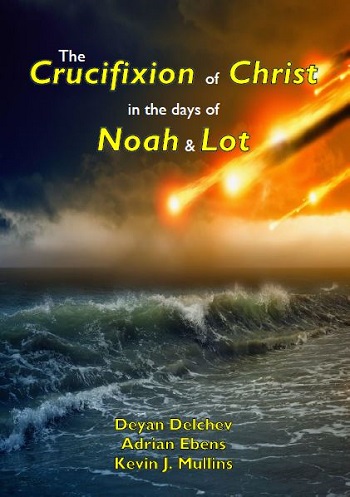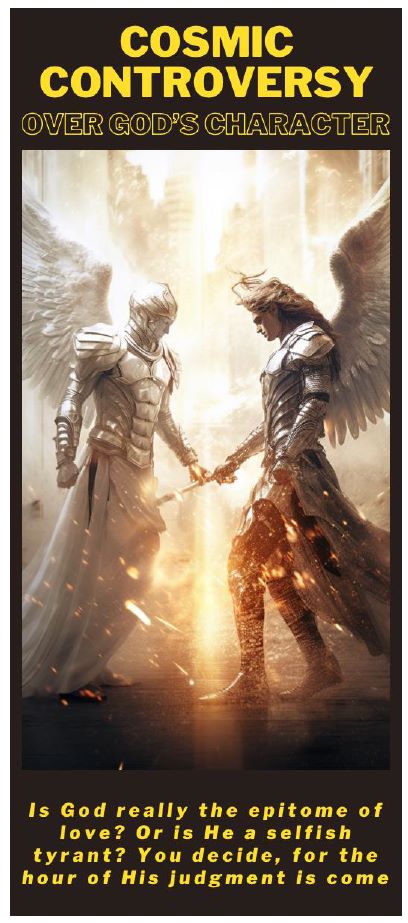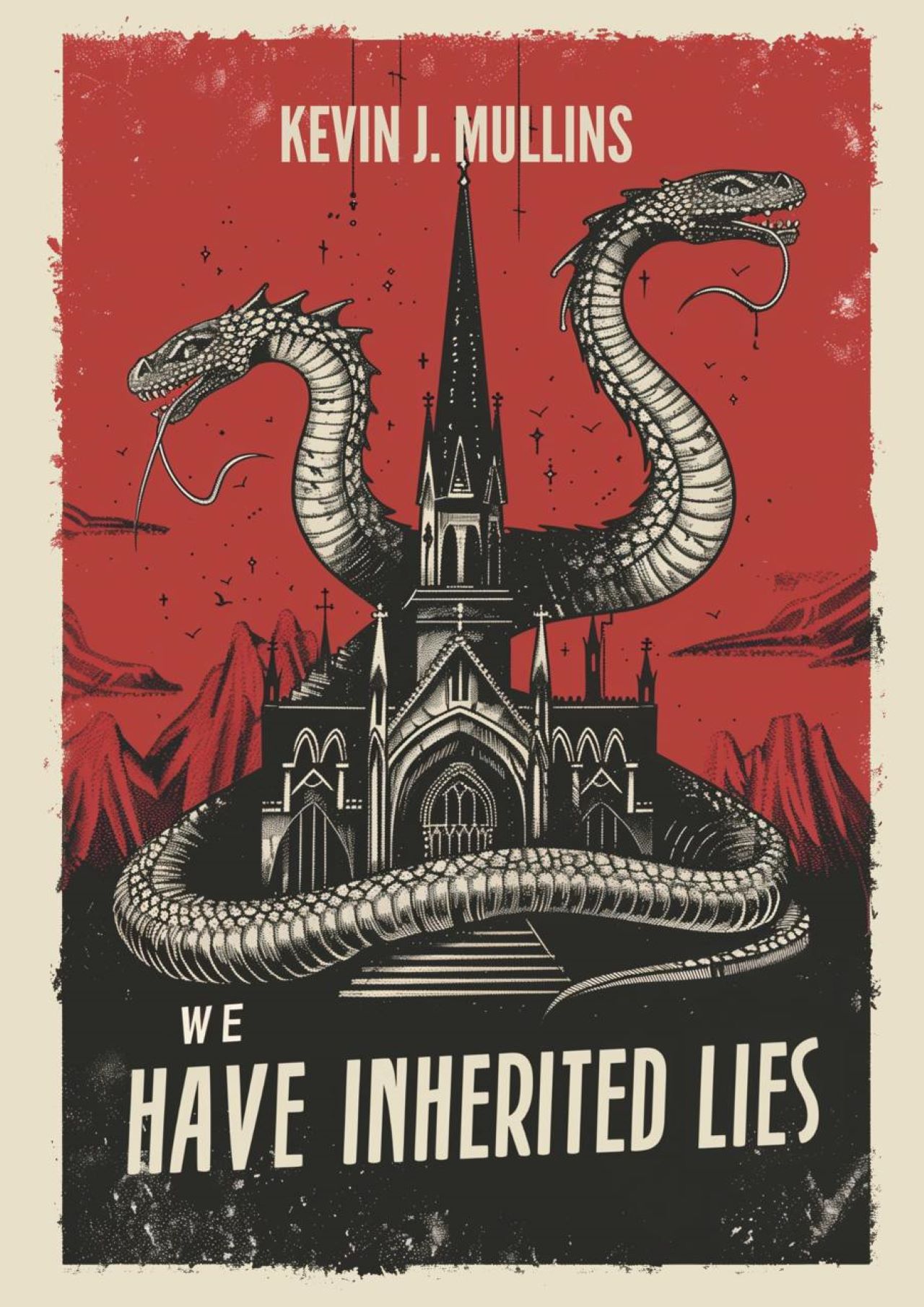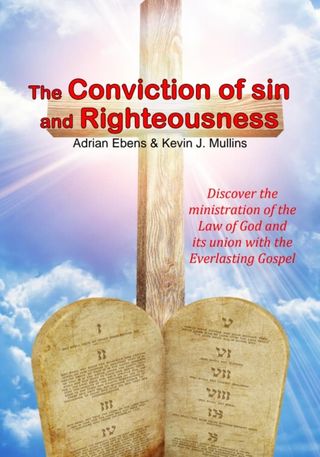(Revelation 1:4, 5) Didn’t the Prophet John See the Trinity in Heaven While in Vision?
“John to the seven churches which are in Asia: Grace be unto you, and peace, from him which is, and which was, and which is to come; and from the seven Spirits which are before his throne; And from Jesus Christ …” (Revelation 1:4, 5)
Some have thought that this is a greeting from the trinity, reasoning that the one on the throne is the Father, the Holy Spirit is before His throne, and Jesus Christ completes the trinity. But the Holy Spirit is not specifically mentioned here. Instead we read of “the seven spirits which are before his throne.” This is a strange statement if viewed from a trinitarian perspective. If it is referring to the Holy Spirit, why is it called “seven Spirits,” and why is it said to be before God’s throne instead of being on the throne?
These questions have baffled trinitarian Bible commentators who seem to be divided into two main categories: those who believe this has reference to the Holy Spirit, and those who believe it refers to God’s angels.
Some hold that Isaiah 11:2 provides proof that God’s Spirit is spoken of in a multifaceted manner, thus explaining how His Spirit can be called “the seven spirits.”
“And the spirit of the LORD shall rest upon him, the spirit of wisdom and understanding, the spirit of counsel and might, the spirit of knowledge and of the fear of the LORD.” (Isaiah 11:2)
There is aslo Biblical data to support the idea that the term “seven spirits” refers to God’s angels. John wrote;
“And I beheld, and, lo, in the midst of the throne and of the four beasts, and in the midst of the elders, stood a Lamb as it had been slain, having seven horns and seven eyes, which are the seven Spirits of God sent forth into all the earth” (Revelation 5:6)
The seven eyes are the seven Spirits of God that are sent forth into all the earth.
The writer of Hebrews states: “But to which of the angels said He at any time, Sit on my right hand, until I make thine enemies thy footstool? Are they not all ministering spirits, sent forth to minister for them who shall be heirs of salvation?” (Hebrews 1:13, 14). The angels of God are ministering spirits sent forth to minister. The number seven represents completeness, and could refer to the complete host of heavenly angels.
The seven Spirits are before the throne of God. John also saw that “all the angels stood round about the throne” (Revelation 7:11). John “heard the voice of many angels round about the throne… and the number of them was ten thousand times ten thousand, and thousands of thousands” (Revelation 5:11). Many angels are round about God’s throne. The seven Spirits that are before God’s throne have been interpreted by some to be the multitude of angels; ministering spirits sent forth into all the earth.
The seven Spirits are also called “the seven eyes” of the Lord. Zechariah wrote concerning the eyes of the Lord: “For who hath despised the day of small things? for they shall rejoice, and shall see the plummet in the hand of Zerubbabel with those seven [referring to Zechariah 3:9]; they are the eyes of the Lord, which run to and fro through the whole earth” (Zechariah 4:10). In the immediate context of this statement Zechariah was given a vision of two olive trees that empty golden oil out of themselves into the seven candlesticks, which “are the seven churches” (Revelation 1:20). An angel told Zechariah that the two olive trees, “are the two anointed ones, that stand by the Lord of the whole earth” (Zechariah 4:14). These are the two anointed angels represented by the two angels on the Ark of the Covenant that cover the mercy seat (Exodus 25:18-22). The seven eyes that run to and fro through the whole earth can refer to the host of heavenly angels.
We see the same language used in the second book of Chronicles: “For the eyes of the Lord run to and fro throughout the whole earth, to shew Himself strong in the behalf of them whose heart is perfect toward Him” (2 Chronicles 16:9). A guardian angel protects each one of us. God said, “For he shall give his angels charge over thee, to keep thee in all thy ways” (Psalms 91:11).
Some trinitarians have objected to viewing the “seven Spirits” as angels because grace and peace are said to come from them. They also figure it would be unusual for John to mention the Father, the Son and angels without mentioning the Holy Spirit. A big part of this concern is their preconceived idea that God is a trinity. John was not hampered by this idea, so he was not inhibited from including the angels. Paul did the same thing when he wrote:
“I charge thee before God, and the Lord Jesus Christ, and the elect angels, that thou observe these things without preferring one before another, doing nothing by partiality” (1 Timothy 5:21)
Paul had no problem including the angels to the exclusion of a supposed third person of the trinity. Paul could not have imagined any slight toward the third person, since the trinity had not yet been invented.
The trinity doctrine was formulated nearly four centuries later by the Catholic Church (Handbook for Today’s Catholic, page 16). For a thorough history of this doctrine as well as an explanation of why knowing the truth about God is important, please contact us and request the books entitled, God’s Love on Trial, and The Formulation of the Doctrine of the Trinity.
Regardless of what view is taken on “the seven spirits which are before” God’s throne, Revelation 1:4 certainly does not prove that God is a trinity.






